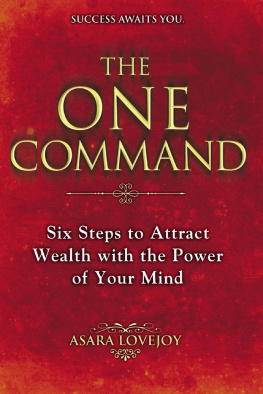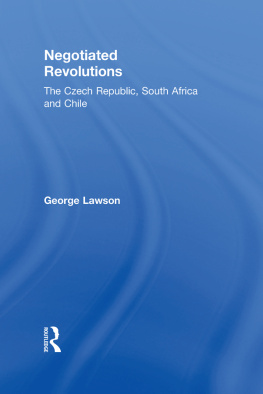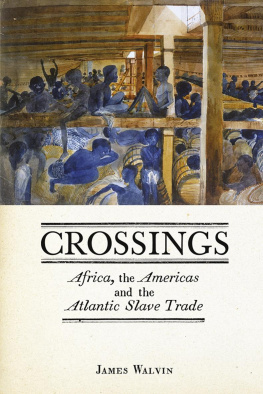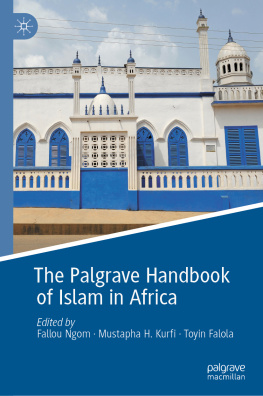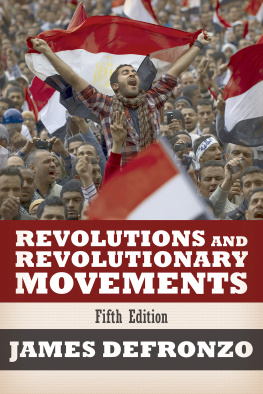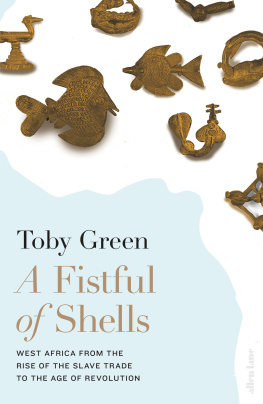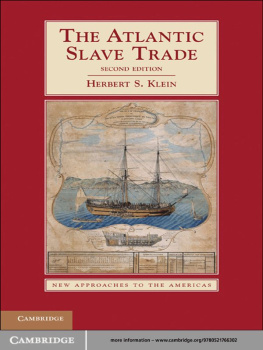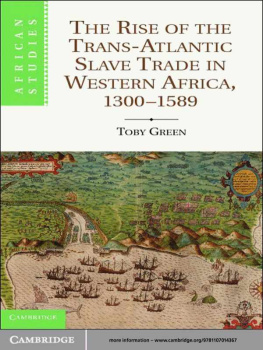JIHD IN WEST AFRICA DURING THE AGE OF REVOLUTIONS
JIHD IN WEST AFRICA DURING THE AGE OF REVOLUTIONS
Paul E. Lovejoy
Ohio University Press
Athens
Ohio University Press, Athens, Ohio 45701
ohioswallow.com
2016 by Ohio University Press
All rights reserved
To obtain permission to quote, reprint, or otherwise reproduce or distribute material from Ohio University Press publications, please contact our rights and permissions department at (740) 593-1154 or (740) 593-4536 (fax).
Printed in the United States of America
Ohio University Press books are printed on acid-free paper 
26 25 24 23 22 21 20 19 18 17 16 5 4 3 2 1
Library of Congress Cataloging-in-Publication Data
Names: Lovejoy, Paul E., author.
Title: Jihd in West Africa during the Age of Revolutions / Paul E. Lovejoy.
Description: Athens, Ohio : Ohio University Press, 2016. | Includes bibliographical references and index.
Identifiers: LCCN 2016040522| ISBN 9780821422403 (hc : alk. paper) | ISBN 9780821422410 (pb : alk. paper) | ISBN 9780821445839 (pdf)
Subjects: LCSH: IslamAfrica, WestHistory18th century. | IslamAfrica, WestHistory19th century. | Jihad. | Usuman dan Fodio, 17541817. | Sokoto Jihad, 18031830. | Islam and stateAfrica, West. | WarReligious aspectsIslam.
Classification: LCC BP64.A38 L68 2016 | DDC 297.096609033dc23
LC record available at https://lccn.loc.gov/2016040522
Dedicated to Rina for her inspiration, encouragement, and support
CONTENTS
TABLES
MAPS
PLATES
Following :
Following :
ACKNOWLEDGMENTS
I owe a debt to various scholars, students, and former students with whom I have worked and published throughout my career. Without their enthusiastic involvement and intellectual interaction, my work would never have attained the level that it has. I specifically want to recognize the contributions of Steven Baier, with whom I first developed the argument relating to the desert-side economy of the Bild al-Sdn. Jan S. Hogendorn and I together recorded oral testimonies in Nigeria and analyzed British colonial policy on the slave societies of what became Northern Nigeria. David Tambo and Louise Lennihan were part of a team that copied many documents in the Nigerian National Archives in Kaduna, which have subsequently been digitized and cross-referenced to the digital collection made by Mohammed Bashir Salau, whose work on plantations in the Sokoto Caliphate has elaborated my early conceptions of plantation slavery in West Africa. Sydney Kanya-Forstner and I undertook several projects that inform this book, including the study of the conquest of the Sokoto Caliphate, French policy on slavery, and the travels and impact of Ahmad el-Fellati ibn Dauda ibn Muhammad Manga. Yacine Daddi Addoun and I studied the life and works of Muhammad Kab Saghanughu, as well as the Katsina merchant Ahmad Abu al-Ghaith and the account of Islam in Brazil of Abd al-Rahman al-Baghdadi. Jennifer Lofkrantz and I worked on Islamic law and commerce in West Africa. Jamie Bruce Lockhart and I published an annotated version of the journals of the second expedition of British diplomat Hugh Clapperton, whose accounts of Oyo, Sokoto, and Borno in the 1820s are crucial in understanding the jihd. I first undertook the study of the life of Mahommah Gardo Baquaqua with Robin Law and have continued it with Bruno Vras and Danielle Brouwer. Various people have helped with the oral data that underlie the study of slavery in the Sokoto Caliphate, including Mohammed Bashir Salau, Ibrahim Hamza, Saude Hamza, and of course the various students and research assistants who were involved in the collection of oral interviews when I was a lecturer at Ahmadu Bello University in Nigeria. David V. Trotman and I analyzed the Muslim immigrants to Trinidad in the early nineteenth century and by extension developed the idea that the experiences of individuals in Africa shaped their responses to enslavement and emancipation in the Americas. Moreover, over the years I have benefited from extensive intellectual interaction with Martin A. Klein, Ann OHear, M. B. Duffill, Toyin Falola, Boubacar Barry, Suzanne Schwarz, David Richardson, and Bruce Mouser and more recently with Benedetta Rossi, Manuel Barcia, Ibrahima Seck, and Gwendolyn Midlo Hall. Carlos da Silva Jr., Neilson Bezerra, Myriam Cottias, Elaine Moreira, Mariana Candido, Feisal Farah, Henry B. Lovejoy, Jennifer Lofkrantz, Vanessa Oliveira, Olatunji Ojo, Tim Soriano, Bruno Vras, and Katrina Keefer have also assisted in various ways and therefore require an expression of my appreciation. Various colleagues have commented on all or portions of the manuscript, including Yacine Daddi Addoun, Michael La Rue, Bruno Veras, Bruce Mouser, Jennifer Lofkrantz, and Sean Kelley. David Eltis has helped me in many ways, often challenging me to refine my arguments, and especially through his patience in deciphering the Voyage Database. Yacine Daddi Addoun corrected the Arabic. Henry Lovejoy deserves additional recognition for constructing the maps for this study and providing essential feedback on the Yoruba dimension. Charles Eberline undertook the painstaking task of copy editing the manuscript, for which I am grateful.
Various aspects of my arguments in this book have been presented at conferences too numerous to list, as well as in many publications that are identified in the introduction. I fully acknowledge this lengthy progression of my thoughts that have been shaped over the years since I conducted my Ph.D. research in Nigeria in 196970 and subsequently developed my thoughts while I was teaching at Ahmadu Bello University in 197476. The Social Sciences and Humanities Research Council of Canada has provided generous funding for my research over the years. Moreover, the research for this project was completed under the auspices of the Canada Research Chair in African Diaspora History. The need to discuss the issue of jihd in the context of the Atlantic world and the contemporary political scene derives from numerous conversations I have had with Rina Cceres Gmez, to whom this book is dedicated.
GLOSSARY
ajamiLanguages other than Arabic written in Arabic script
al-jjHonorific title for someone who has performed the pilgrimage to Mecca
alkali (Hausa)Judge
Bild al-SdnLand of the blacks, that is, sub-Saharan Africa and specifically the Sahel and savanna
birni (Hausa)Walled town
bori (Hausa)Spirit-possession cult
caffa (Hausa)Land grants based on clientage
ceddoWarlords, military governments of the western Bild al-Sdn
diwalProvinces of Fuuta Jalon
fadama (Hausa)Irrigated land
Fulani (Hausa)Fulbe
gandu (Hausa)Plantation, depending on context; land worked collaboratively on the basis of kinship
gona (Hausa)Farm
adthOral traditions of the Prophet Muhammad
hijraFlight, withdrawal of the Muslim community to a sanctuary
hurumi (Hausa)Land grants based on clientage
immThe leader in prayer at mosques; by extension, the leader of the Muslim community
jamaMuslim community
jihdMuslim holy war
ribFortified town, often on a frontier
rinji (Hausa)Plantation
rumdeSlave estates, plantations; also rimaib
salafiAdherence to strict interpretation of Islamic law and rejection of innovation
sarki (Hausa)King, chief; but when used with a specific title, sarkin, as in sarkin gandu
sarkin bori (Hausa)Chief of the bori spirit possession cult
Next page

